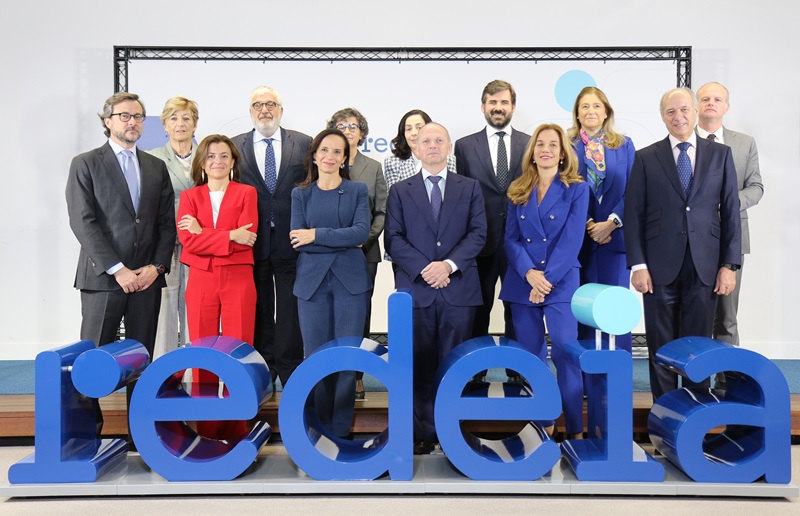We are a global operator of essential infrastructure
- The International Union for Conservation of Nature is featuring the Spanish initiative in its publication, ‘Applying the IUCN Global Standard for Nature-based Solutions’, which will be presented this October at the IUCN World Conservation Congress in Abu Dhabi
- Pastoreo en Red is Redeia's initiative to manage vegetation under Red Eléctrica's power lines using extensive grazing. The project helps prevent forest fires, improve biodiversity, promote rural development and tackle rural depopulation
Pastoreo en Red, Redeia's initiative to manage vegetation under the transmission grid of Red Eléctrica with extensive livestock grazing, is the only Spanish ‘nature-based solution’ (NbS) to be included by the International Union for Conservation of Nature (IUCN) among 21 global best practices in its publication, ‘Applying the IUCN Global Standard for Nature-based Solutions’‘.
Through Pastoreo en Red, Red Eléctrica supplements mechanical methods for controlling vegetation under its power lines with 'biological machinery' —namely, sheep, goats, cattle and horses. It developed an initial pilot in 2019 in La Rioja, which was later extended to the mountains of León and is now being implemented in Asturias. The project is carried out with the support of the company Agrovidar and local livestock farms in the grazed areas.
‘The security corridors that run under the power lines must be kept clear and accessible, both to prevent fires and to stop vegetation from reaching the overhead cables, and to ensure that, if needed, maintenance teams can quickly access the site to resolve any incidents. With Pastoreo en Red, we achieve this, fulfilling Red Eléctrica's commitment to making its infrastructure compatible with nature and contributing to the surrounding environment. It delivers positive environmental and social impacts, such as promoting rural development and preventing depopulation,’ says Laura Quintana, Director of Sustainable Development at Redeia.
According to samples and data collected over recent years, the action of livestock on the transmission grid reduces the volume of combustible biomass and modifies the type of vegetation in the grazed areas: shrubs and scrubland have given way to grassy surfaces, lowering the risk of forest fires. Furthermore, the grazed lands record higher rates of biodiversity than other non-grazed areas, with a greater presence of arthropods, butterflies, pollinators and floral units, turning these Red Eléctrica facilities into ecological corridors and reducing one of the Spanish environment's key problems: habitat fragmentation.
In 2022, the IUCN recognised Pastoreo en Red as a ‘nature-based solution’ (NbS), defined as an action that uses the tools provided by nature to protect, sustainably manage, and restore ecosystems, delivering benefits for both human well-being and biodiversity. At the time, it noted that the project meets the criteria of the IUCN Global Standard for NbS to a high level, which considers eight criteria and 28 indicators.
Now, the IUCN Commission on Ecosystem Management has included Pastoreo en Red in a selection of 21 case studies from around the world to analyse, learn from, and showcase examples of best practices. The selection explores in detail how the standard can be applied in different contexts, regions and diverse biomes (marine, coastal, freshwater, terrestrial, and even urban), and address today's major social and environmental challenges.
The selection was made following an exhaustive three-year process that involved more than 73 experts from 23 countries across Oceania, Asia, Europe, Africa, North America, and South America. The publication ‘Applying the IUCN Global Standard for Nature-based Solutions’ will be presented at the IUCN World Conservation Congress in Abu Dhabi this coming October.












